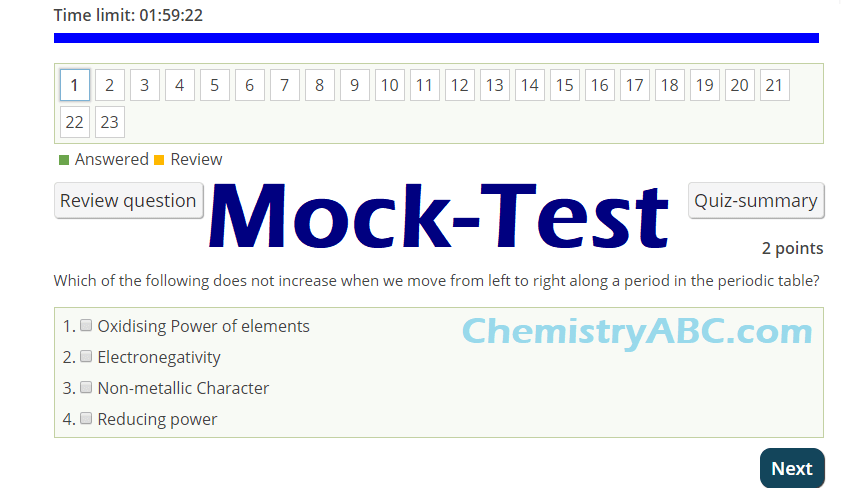Top Analytical Chemistry Interview Questions for MSc Freshers
Preparing for an interview in Analytical Chemistry requires a solid understanding of fundamental concepts and the ability to articulate your knowledge effectively. To assist MSc Analytical Chemistry freshers in their preparation, here are some commonly asked interview questions along with brief explanations:
- Explain the term Aliquot and Diluent.
Aliquot: A measured sub-volume of the original sample.
Diluent: A material with which the sample is diluted.
- What is molality?
Molality is the number of moles of solute present in 1 kg of solvent.
- What is titration?
Titration is a technique to determine the molarity of an acid or base by reacting it with a solution of known concentration.
- What is a buffer, and how does it work?
A buffer is an aqueous solution that resists changes in pH upon the addition of small amounts of acid or base. It typically consists of a weak acid and its conjugate base.
- What is the difference between chromatographic purity and related substances?
Chromatographic purity refers to the percentage area of the main compound in a chromatogram, indicating its purity. Related substances are impurities or degradation products present in the sample.
- Can you summarize the principles of chromatography?
Chromatography is a separation technique based on the differential partitioning between the mobile phase and the stationary phase. Components in a mixture travel at different speeds, leading to separation.
- How would you determine the purity of a chemical sample?
Purity can be determined using techniques like High-Performance Liquid Chromatography (HPLC), mass spectrometry, or titration, depending on the nature of the sample.
- What is the difference between quantitative and qualitative analysis?
Quantitative analysis measures the exact amount of a substance in a sample, while qualitative analysis identifies the components present without measuring their quantities.
- What is a mole?
A mole is a unit that measures the amount of substance, defined as containing exactly 6.022 x 10²³ elementary entities (Avogadro’s number).
- Explain the concept of pH and its importance.
pH is a scale used to specify the acidity or basicity of an aqueous solution. It is crucial in analytical chemistry as it affects solubility, reaction rates, and chemical equilibria.
For a more comprehensive list of interview questions and detailed answers, you can refer to the following videos resources on YouTube:
Analytical Chemistry Interview Questions and Answers
Top 22 Chemistry Interview Questions and Answers
Analytical Chemist Interview Questions (With Sample Answers)
These resources provide a wide range of questions that can help you prepare effectively for your interview.
Books Recommended for Top Analytical Chemistry Interview Questions for MSc Freshers
Additionally, here are some recommended books that can further aid your preparation:
Analytical Chemistry
Authored by Gary D. Christian, this book offers a comprehensive introduction to analytical chemistry principles and techniques.
55
Analytical Chemistry
Authored by Gary D. Christian, this book offers a comprehensive introduction to analytical chemistry principles and techniques.Quantitative Chemical Analysis
Written by Daniel C. Harris, this text delves into quantitative analysis methods, providing practical examples and problem-solving approaches.
58
Quantitative Chemical Analysis
Written by Daniel C. Harris, this text delves into quantitative analysis methods, providing practical examples and problem-solving approaches.Principles of Instrumental Analysis
This book by Skoog, Holler, and Crouch covers various instrumental techniques essential for modern analytical chemistry.
61
Principles of Instrumental Analysis
This book by Skoog, Holler, and Crouch covers various instrumental techniques essential for modern analytical chemistry.Vogel’s Textbook of Quantitative Chemical Analysis
A classic reference that provides detailed procedures and methodologies for quantitative analysis in chemistry.
64
Vogel’s Textbook of Quantitative Chemical Analysis
A classic reference that provides detailed procedures and methodologies for quantitative analysis in chemistry.Fundamentals of Analytical Chemistry
This comprehensive guide covers the fundamental concepts and techniques in analytical chemistry, suitable for both beginners and advanced learners.
Fundamentals of Analytical Chemistry
This comprehensive guide covers the fundamental concepts and techniques in analytical chemistry, suitable for both beginners and advanced learners.These books are widely recognized in the field and can provide in-depth knowledge to enhance your understanding and preparation.
Remember, thorough preparation and a clear understanding of fundamental concepts are key to succeeding in your analytical chemistry interviews.



